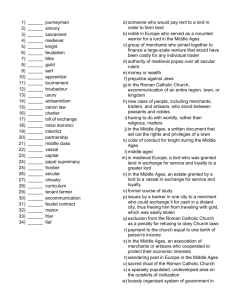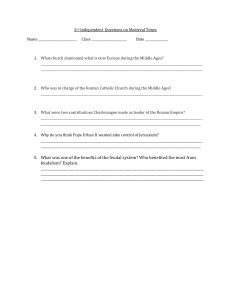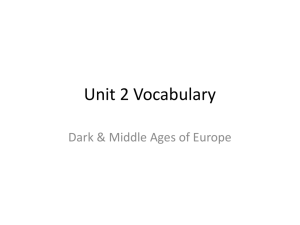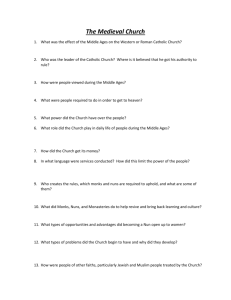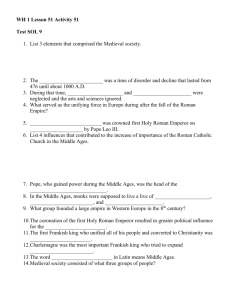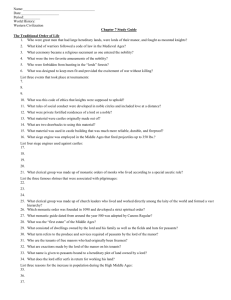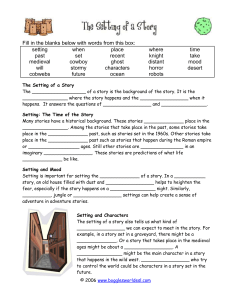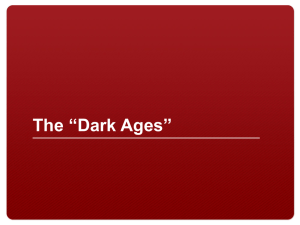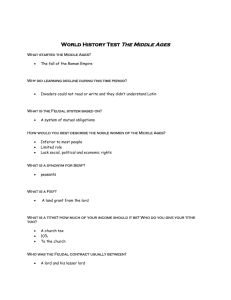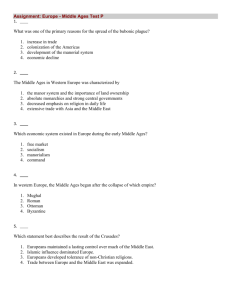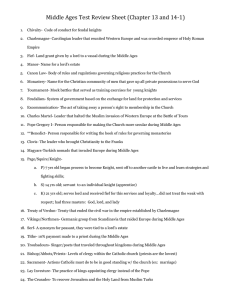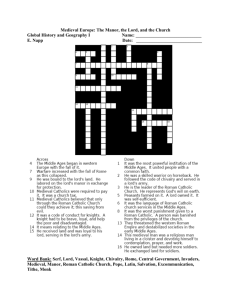Middle Ages & Early Russian Vocabulary
advertisement
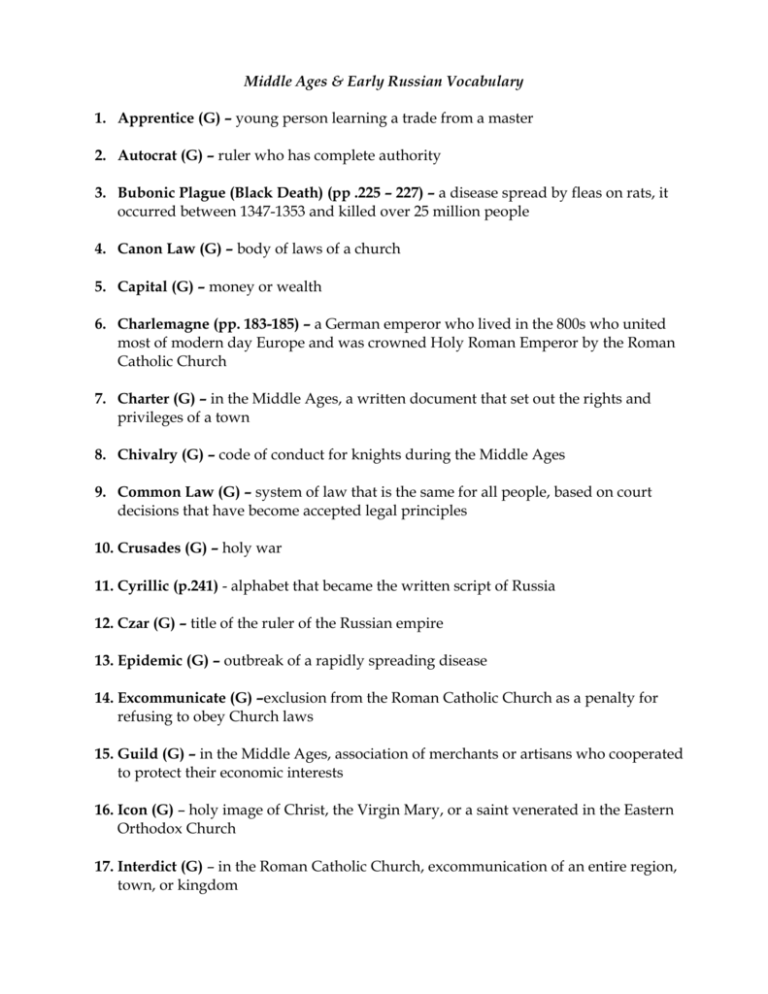
Middle Ages & Early Russian Vocabulary 1. Apprentice (G) – young person learning a trade from a master 2. Autocrat (G) – ruler who has complete authority 3. Bubonic Plague (Black Death) (pp .225 – 227) – a disease spread by fleas on rats, it occurred between 1347-1353 and killed over 25 million people 4. Canon Law (G) – body of laws of a church 5. Capital (G) – money or wealth 6. Charlemagne (pp. 183-185) – a German emperor who lived in the 800s who united most of modern day Europe and was crowned Holy Roman Emperor by the Roman Catholic Church 7. Charter (G) – in the Middle Ages, a written document that set out the rights and privileges of a town 8. Chivalry (G) – code of conduct for knights during the Middle Ages 9. Common Law (G) – system of law that is the same for all people, based on court decisions that have become accepted legal principles 10. Crusades (G) – holy war 11. Cyrillic (p.241) - alphabet that became the written script of Russia 12. Czar (G) – title of the ruler of the Russian empire 13. Epidemic (G) – outbreak of a rapidly spreading disease 14. Excommunicate (G) –exclusion from the Roman Catholic Church as a penalty for refusing to obey Church laws 15. Guild (G) – in the Middle Ages, association of merchants or artisans who cooperated to protect their economic interests 16. Icon (G) – holy image of Christ, the Virgin Mary, or a saint venerated in the Eastern Orthodox Church 17. Interdict (G) – in the Roman Catholic Church, excommunication of an entire region, town, or kingdom 18. Ivan the Terrible (p.243) – Russian Czar known for his brutality and harsh rule. He died in 1584. 19. Justinian (pp. 236-239): Byzantine emperor from 527 to 565 who was noted for a code of laws and many beautiful buildings 20. Knight (G) – noble in Europe who served as a mounted warrior for a lord in the Middle Ages 21. Magna Carta (p. 208) – signed by King John of England it stated that people had certain rights and the king must obey the law 22. Manor (G) – during the Middle Ages in Europe, a lord’s estate, which included one or more villages and the surrounding lands 23. Medieval (G) – referring to the Middle Ages in Europe or the period of history in between ancient and modern times 24. Missionary (G) – someone sent on a religious mission 25. Patriarch (G) – in the Byzantine empire, highest church official in a major city 26. Schism (G) – permanent division in a church 27. Serf (G) – in medieval Europe, peasant bound to the lord’s land 28. Tithe (G) – payment to a church equal to one tenth of a person’s income 29. Vassal (G) – in medieval Europe, a lord who was granted land in exchange for service and loyalty to a greater lord
